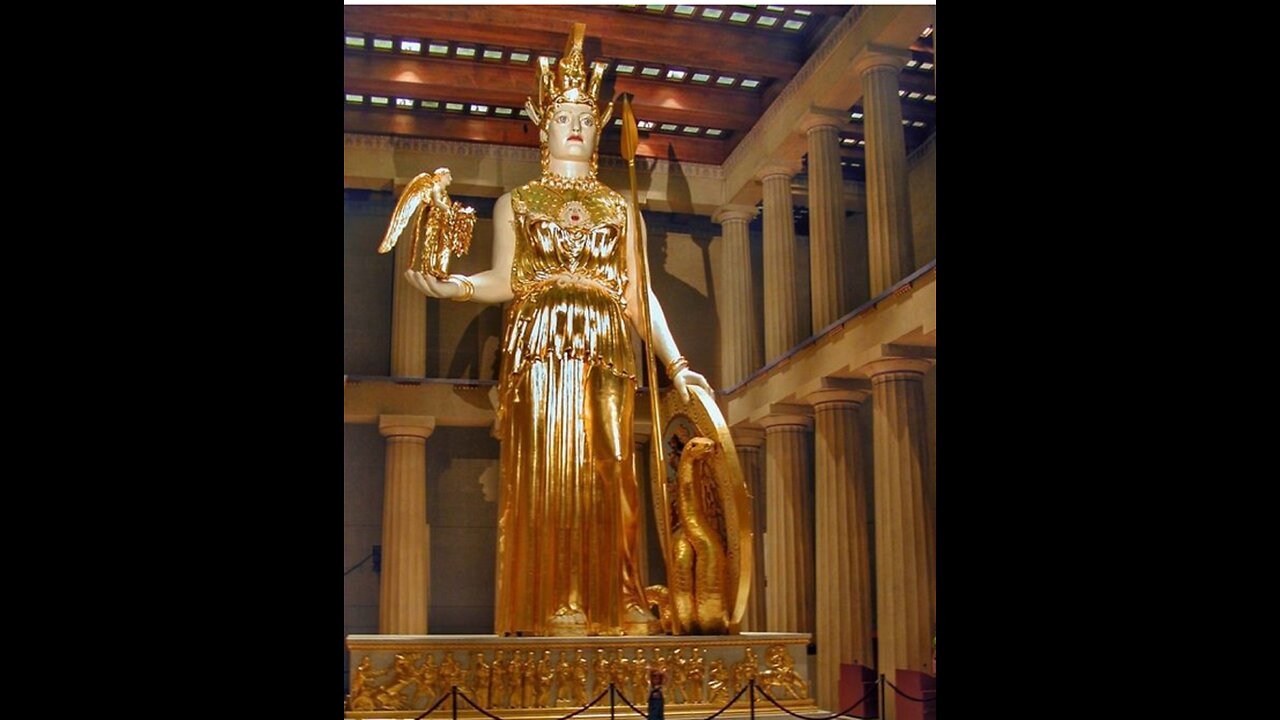Premium Only Content

Athena Hellas
Athens (/ˈæθɪnz/ ATH-inz; Greek: Αθήνα, romanized: Athína, pronounced [aˈθina]
Ancient Greek: Ἀθῆναι, romanized: Athênai, pronounced [atʰɛ̂ːnai̯])
is a major coastal urban area in the Mediterranean, and it is both the capital and the largest city of Greece.
With its urban area's population numbering over three million, it is also the eighth largest urban area in the European Union.
Athens dominates and is the capital of the Attica region and is one of the world's oldest cities, with its recorded history spanning over 3,400 years, and its earliest human presence beginning somewhere between the 11th and 7th millennia BC.
Athens is one of the oldest named cities in the world, having been continuously inhabited for perhaps 5,000 years.
The city was named after Athena, the ancient Greek goddess of wisdom.
Classical Athens was one of the most powerful city-states in ancient Greece.
It was a centre for democracy, the arts, education and philosophy, and was highly influential throughout the European continent, particularly in Ancient Rome.
For this reason, it is often regarded as the cradle of Western civilization and the birthplace of democracy in its own right, independently of the rest of Greece.
In modern times, Athens is a huge cosmopolitan metropolis and central to economic, financial, industrial, maritime, political and cultural life in Greece.
In 2023, Athens metropolitan area and its surrounding municipalities (consisting the regional area of Attica) has a population of approximately 4.2 million.
Athens is a Beta-status global city according to the Globalization and World Cities Research Network, and is one of the biggest economic centers in Southeastern Europe. It also has a large financial sector, and its port Piraeus is both the 2nd busiest passenger port in Europe, and the 13th largest container port in the world.
The Municipality of Athens (also City of Athens), which constitutes a small administrative unit of the entire urban area, had a population of 698.567 (in 2023) within its official limits, and a land area of 38.96 km2 (15.04 sq mi). The Athens metropolitan area or Greater Athens extends beyond its administrative municipal city limits as well as its urban agglomeration, with a population of 4,207,281 (in 2023) over an area of 2,928.717 km2 (1,131 sq mi). Athens is also the southernmost capital on the European mainland.
The heritage of the Classical Era is still evident in the city, represented by ancient monuments, and works of art, the most famous of all being the Parthenon, considered a key landmark of early Western culture.
The city also retains Roman, Byzantine and a smaller number of Ottoman monuments, while its historical urban core features elements of continuity through its millennia of history.
Athens is home to two UNESCO World Heritage Sites, the Acropolis of Athens and the medieval Daphni Monastery. Landmarks of the modern era, dating back to the establishment of Athens as the capital of the independent Greek state in 1834, include the Hellenic Parliament and the Architectural Trilogy of Athens, consisting of the National Library of Greece, the National and Kapodistrian University of Athens, and the Academy of Athens. Athens is also home to several museums and cultural institutions, such as the National Archeological Museum, featuring the world's largest collection of ancient Greek antiquities, the Acropolis Museum, the Museum of Cycladic Art, the Benaki Museum, and the Byzantine and Christian Museum.
Athens was the host city of the first modern-day Olympic Games in 1896, and 108 years later it hosted the 2004 Summer Olympics, making it one of five cities to have hosted the Summer Olympics on multiple occasions.
Athens joined the UNESCO Global Network of Learning Cities in 2016.
According to the ancient Athenian founding myth, Athena, the goddess of wisdom and war, competed against Poseidon, the God of the Seas, for patronage of the yet-unnamed city; they agreed that whoever gave the Athenians the better gift would become their patron and appointed Cecrops, the king of Athens, as the judge.
According to the account given by Pseudo-Apollodorus, Poseidon struck the ground with his trident and a salt water spring welled up.
In an alternative version of the myth from Vergil's poem Georgics, Poseidon instead gave the Athenians the first horse.
In both versions, Athena offered the Athenians the first domesticated olive tree.
Cecrops accepted this gift and declared Athena the patron goddess of Athens.
https://en.wikipedia.org/wiki/History_of_Athens
-
 4:11
4:11
CigaretteSmokingMan
6 months agoCatatonia - Mulder And Scully
17711 -
 LIVE
LIVE
Right Side Broadcasting Network
1 hour agoLIVE: President Trump Meets with U.S. Ambassadors and More from the White House - 3/25/25
3,741 watching -
 LIVE
LIVE
Scammer Payback
1 hour agoCalling Scammers Live
609 watching -
 LIVE
LIVE
The White House
1 hour agoPresident Trump Stops by Meeting with U.S. Ambassadors
1,520 watching -
 1:31:23
1:31:23
Russell Brand
3 hours agoTrump War Plans "Accidentally" LEAKED On Signal, BACKFIRES On Fake Media! – SF554
138K60 -
 1:16:37
1:16:37
Sean Unpaved
3 hours agoWhat's Going On With The Transfer Portal? along with Former Defensive Tackle Mike Golic
10.8K -
 51:24
51:24
Ben Shapiro
3 hours agoEp. 2165 - National Security Bombshell & The Case For Derek Chauvin Ep.3 | The Autopsy
33K26 -

The Tom Renz Show
2 hours agoDOGE War & Trump - Money is Behind Everything
4713 -
 1:24:28
1:24:28
Tucker Carlson
1 day agoCaptain Sherry Walker Reveals the Real Reason for All These Plane Crashes
124K152 -

SoundBoardLord
5 hours agoThe Red Dead Journey Concludes!!!
19.1K1